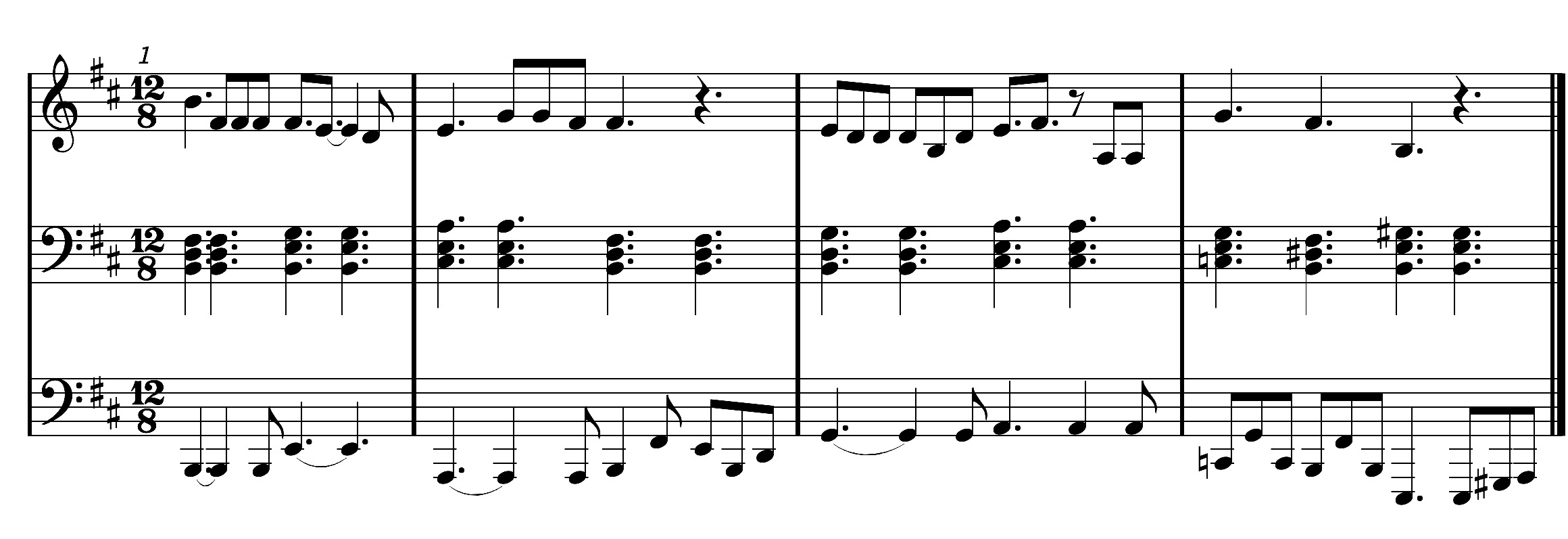I am writing a song and have just finished the bassline. If you look in the image below, in the 3rd bar the bass line gets quite close to the chord above it and the chord is already rather low in the bass register so I wanted to ask if this can be a problem since the G of the bass and the B of the chord are only a 3rd away. I have read that intervals of a 3rd below D on the bass clef should be avoided as they may not sound as nice so I just wanted to see if anyone else can tell me if i have been misinformed or not as the bassline doesn't sound so bad with the chords to my ears.
-
3Beauty is in the eye of the beholder. Musical beauty is in the ear of the listener. It's your music, and you are the decider. try it both ways, and make that decision. Never mind what the 'rules' tell you. One way will sound better. If it doesn't, do as I often do - scrap it and re-try.– TimCommented Aug 6, 2020 at 17:13
-
2Bass lines don't need to stay below everything else all the time. They can make forays into higher ranges. What instruments are going to play it? (Your lowest note is the lowest note on both bass guitar and double bass, btw.) Low, close intervals can sound muddy. As Tim says, if it sounds OK to you . . .– Old BrixtonianCommented Aug 6, 2020 at 18:07
-
Which instruments is this written for? Is it piano and bass guitar? The reason I ask is you could get your idea across adequately on piano alone by bringing some of the chord voicing up to the right hand and play the bass on the left. That way you could bring the bas up an octave. It’s a common technique used in pop music for piano.– user30510Commented Aug 6, 2020 at 23:28
-
@ArtyTwist: I also wonder which instruments this is written for, but my first guess was an organ (two hands plus pedals). But it could be anything. Maybe it is written for a guitar, a bass guitar and a double bass, or even a piano and a tuba (in which case the tube should be written above the piano). But the answer to the question is always the same.– Hubert SchölnastCommented Aug 7, 2020 at 7:38
-
@ArtyTwist The bass guitar will play the bassline and the chords will be on the piano as will the melody for now. I actually sing this song 1 octave lower (I am a baritone or bass-baritone) but I wanted to arrange it so i could play both the melody and chords on the piano. When I actually record the song, I will move the chords up to the right hand and be singing the song so I am not even sure what voicings I will use. Maybe I will just play the chords on the right hand alone and leave the octave where my chords are now so I can sing in that space.– user35708Commented Aug 7, 2020 at 12:08
1 Answer
You are the composer. You can write what you want. All rules for composers are made to be broken. Learn them, understand why they are good and useful in most cases and then break some of them. Your 4 bars sound nice, and that's all that counts.
I am singing in a choir, and it is not unusual to find the altos been written higher than the sopranos for single notes or even a few bars. Also having the bass higher than tenors or tenors higher than altos is quite usual for short sections. This can be found also in other instrument families (for example cello higher than viola). The name for this technique is voice crossing. And if the instruments you use don't belong to the same family (like piano and tuba), then there even isn't a rule that recommends to have the pitch ranges separated.
So, even if your lowest instrument moves higher that the middle one, this is no problem, as long as it its technically playable and sounds as wanted.

